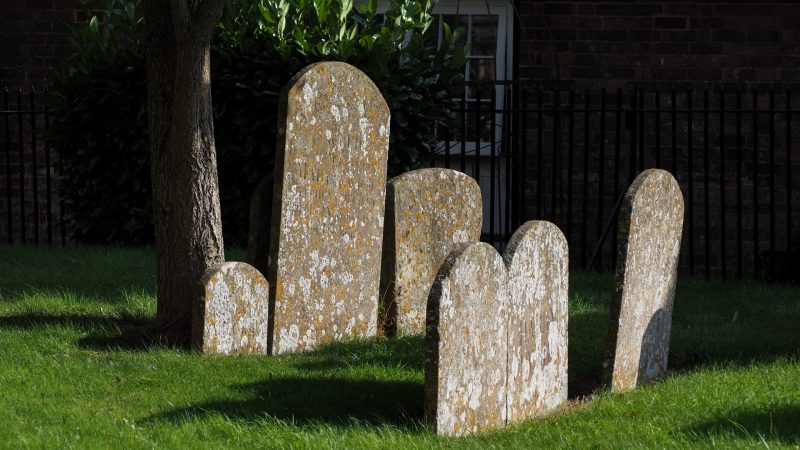
Revival Phobia – Fear of Disorder
So [to conclude], my brethren, earnestly desire and set your hearts on prophesying (on being inspired to preach and teach and to interpret God’s will and purpose), and do not forbid or hinder speaking in [unknown] tongues. But all things should be done with regard to decency and propriety and in an orderly fashion.
1 Corinthians 14:39-40 (AMPC)
The Apostle Paul found the Corinthian Christians had wrongly concentrated on what they reckoned to be the more dramatic spiritual gifts; they also were in disorder, heresy, immorality, and division. Yes, we do well to heed Paul’s warning. Still, equally, we must also not react by adopting an understanding of the spiritual gifts that effectively excludes a God who transcends our finite minds and who in His love and grace reveals Himself unexpectedly and powerfully in our human existence.
Could it be that we confuse order with peace, quietness, and a controlled programme, and maybe we think there is confusion when these are absent? Eighteenth-century American minister Jonathan Edwards considered it no more confusing than if a group of people should meet in the field to pray for rain and then be disturbed from their praying by a heavy shower. Likewise, the many frequent criticisms that fell on his English contemporaries John Wesley and George Whitefield, and indeed many other past revival movements have sometimes been based on the wrong understanding of order.
If we think that revival must be “decent and orderly” (characterised by quietness, human control, and predictability), perhaps we do not understand what revival is. Consequently, do we cut ourselves off from what has happened in nearly every revival in the history of God’s people? Remember the radically different reactions of people in Jerusalem to that first post-resurrection Pentecost (Acts 2).
Jonathan Edwards was convinced that nothing of spiritual importance ever took place in a human heart if it was not deeply touched by such Godly emotions. The testimonies of past revivals are full of descriptions of people profoundly impacted – weeping, shaking, crying out, falling down and sometimes becoming deeply troubled. Such events can threaten us, and cause us to fear because they seem so strange, unfamiliar, and deeply unsettling; we fear losing control when we are overcome by the convicting power of the Holy Spirit.
Few would disagree that it is indeed irresponsible for any church leader to work their people into an emotional frenzy. But is it also not most unhealthy for them to suppress the Holy Spirit’s work to maintain control over the service? Understand that revival isn’t the church deciding to do something and doing it. No, revival is something done to the church, something that happens to the church. To experience God’s reviving power, we must be willing to relinquish control to the Head of the Church. He waits for us to lay aside our plans and programmes so we can fully experience what He has wanted to do in our midst all along.
Jonathan Goforth, the foremost missionary revivalist in early twentieth-century China graphically described revivals with these words, “As well expect a hurricane, an earthquake, or a flood to leave nothing abnormal in its course, as to expect a true revival that is not accompanied by events quite out of our ordinary experience.” Has much of the church developed an unhealthy ‘addiction’ to perfection which doesn’t make allowance for ‘messes’? Has our great commission increasingly become one of keeping things neat and tidy, so much so that if the gifts of the Spirit ‘interfere’ with our drive for order, the order is more highly valued above increase?
Times of revival can seem to have little order, and be even chaotic, for God is reordering His people’s priorities and lives so that they are pleasing to Him. Revival isn’t for the faint-hearted. Revival brings fear to the complacent because of the ‘risks’ required. As many fear excess, mediocrity is embraced as balance, complacency is elevated to a virtue, and those resistant to change can appear noble-minded. However, let’s be clear revivals are quenched by the condemnations of opponents, not by excess.
Inconsistencies and irregularities and inconveniences are always present in revival. “A work of God without stumbling blocks,” wrote Jonathan Edwards, “is never to be expected.” But when revival is under the Holy Spirit’s hands, however, a spirit of reverence and awe will prevent anarchy. God has a marvellous way of completely dismantling His people and remaking them into His image while keeping control of the process the entire time. Revival kills off the ‘old church’ and leaves an entirely different one in its place. All of this can be painful, uncomfortable, disruptive, and even expensive, and being human, we don’t like pain, discomfort, disruption, and expense!
Returning to the church in Corinth, which experienced first-hand the revival of the first century. It is worth remembering that the so-called “Corinthian disorders” were due to the uncontrolled overflow of Holy Spirit life. Today, could it be that many of our churches are ‘orderly’ simply because they are asleep, and with some, one fears that it is the sleep of death. It is no great thing to have order in a cemetery. The real and deplorable carnality and immaturity of the Corinthian Christians, which Paul censures so strongly elsewhere in his letter, must not blind us to the fact that they were enjoying the abundant ministry of the Holy Spirit in a way in which we today are not.
Finally, take time to ponder and reflect on this verse of scripture –
“So, we will never fear even if every structure of support were to crumble away. We will not fear even when the earthquakes and shakes, moving mountains and casting them into the sea. For the raging roar of stormy winds and crashing waves cannot erode our faith in you.” Psalm 46:2 (TPT).